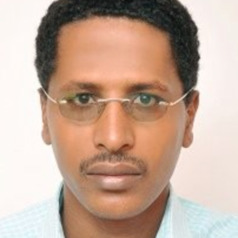
Emiru Birhane
Professor in Ecology, Mekelle University
I am a professor in restoration ecology at the department of Land resource management and environmental protection, Mekelle University. I have a PhD in Forest Ecology and Management from Wageningen University in The Netherlands; MSc degree in Farm Forestry from Swedish University of Agricultural Sciences, Sweden; and Bsc degree in forest science from Alemaya University of Agriculture, Ethiopia. I have an extensive academic and practical knowledge in forestry, ecology and management and soil quality among numerous other related fields.I used to lecture different courses in Mekelle University to Bsc. MSc. and PhD students at lecturer, assistant professor, associate professor and professor level in the areas of ecology, mycorrhizal ecology, forestry, natural resources, Ecological methods, research methods, scientific methods and other related courses for the last 20+ years. I thought PhD courses such as dryland ecology and restoration, advanced statistical methods (Ecological methods), advanced soil microbiology and scientific research writing. Msc level courses include forest ecology and management, statistical methods, environmental science, biodiversity and ecosystem functions, research methods and Agroforestry. I have also thought courses in ecology, agroforestry, forestry, biodiversity and dryland resource management at Bsc level.
I have more than 20 years of experience with research in rural areas in developing countries and has done research in Ethiopia, East Africa, Europe and Asia since 2001. This includes establishment of research lab in soil ecology and dry forest permanent plots in restored areas and remnant dry Afromontane forests. I founded the Soil ecology lab in 2015, a lab that validates mycorrhizal ecology and scale up local knowledge for sustainable development in Africa.I have long experience with field experiments and has strong skills in ecological methods and ecological impact analysis. I am recognized as a leading expert on restoration issues in Ethiopia, on which I have published more scientific papers than any other researcher has compared to the research facilities and available funds.
I have published more than 120articles in peer reviewed reputable journals, 4 books, 20 book chapters, conducted more than 36 consultancy and community service, participated in more than 60 different conferences and seminars. I have advised more than 79 Msc. students and advising and co-advising more than 28 PhD students. I won and coordinated 22 Research projects in the area of Ecology, forest science and restoration. I have been the PI and coordinator of 4 internationally funded projects (Sustainable forest management, Tree youth right, Tree for food security II, CIRCLE), several nationally funded projects and a consortium member to several projects. I was a post-doc researcher at the Norwegian University of Life Sciences (NMBU), Norway from February 2015-February 2018. I have also completed another Post-doc research for the open society project-ACCAI-IIB (May 2018-September 2018). I was active in several community service activities and consultancy services.I worked as a national and international consultant/expert for CGIAR (ICRAF, ILRI, CIFOR), international organizations (UNDP, GIZ, UNIDO, FAO) and different sectors in Ethiopia such as the Ministry of Agriculture, Commission of environment, forest and climate change, Ministry of science and higher education, Forest and environment research institute, Ethiopian institute of agricultural research and others related to agriculture and natural resource in Ethiopia. I worked as a restoration consultant for the Bee research in Saudi Arabia. I have a vast experience in capacity building, risk assessment and management, and project design and implementation in the field of Ecology and Restorations of degraded lands. I served as a consultant in Forest Management for UNDP, Ethiopia.I am known to develop and review curriculum for different universities in Africa. I am also good in networking and linking national and international stakeholders working on landscape restoration and ecosystem services. I used to involve in disseminating research outputs to local communities in collaboration with sector offices. I prepared different manuals, policy briefs and consultancy reports in the area of forestry and natural resources.
My strong and significant involvement in different research, publication and project activities enabled me to serve as an editor in chief, editor and reviewer to different disciplinary, multidisciplinary and professional based journals. I used to assume different administrative positions related to academic and research. I served as a director of the institute of climate and society, editor in chief of the journal of the drylands, head of research and community service of the college of agriculture and natural resources, coordinator of the academic complaint handling committee, chair of staff of promotion at Mekelle University, and practical attachment coordinator at Mekelle University
I am a member and chair of different professional societies. I am elected as a president of the Tigray university scholars association (TUSA) recently. I am a president of the forest society of Ethiopia Tigray branch. I am member of AFRINOM (African network on mycorrhiza), Ethiopian Forestry society, Society for conservation Biology (SCB), Association for Tropical Biology Conservation (ATBC), African Forest Forum (AFF), Society for Applied microbiology (SFAM), Forest Ecology Group and Ethiopian flora network.
I have been active in social Medias and mainstream Medias to convey academic, research and community service activities
Less ![]()
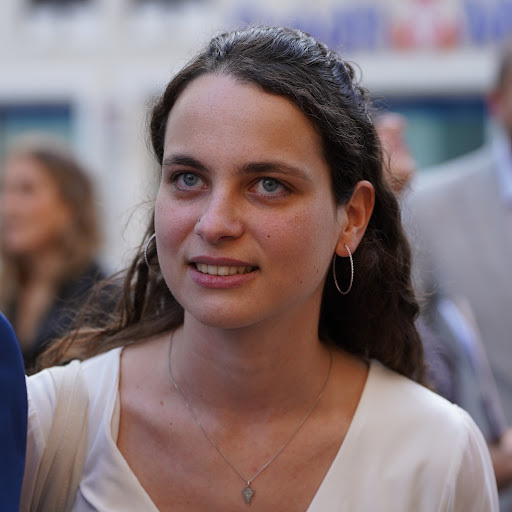
Emma Bouillard
Researcher, CERC in Migration and Integration, Toronto Metropolitan University
Less ![]()
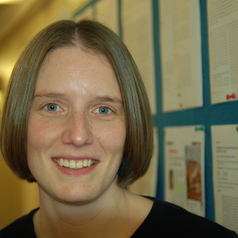
Emma Boyland
Dr Emma Boyland is a Lecturer in Appetite and Obesity at the University of Liverpool. Her PhD research examined food promotion to children in the UK and its effects on their eating behaviours. Her specific research expertise lies in quantifying the extent and nature of food advertising via television, new media and other sources (e.g. supermarket and point of sale promotions) and elucidating the impact of branding activity (e.g. use of promotional characters), and both situational factors (e.g. hunger state), and intrinsic factors (e.g. tendency to eat in the absence of hunger, cue responsiveness) on children’s food preference and intake responses to food marketing.
She has published 25 experimental papers, 11 review articles, and 6 book chapters to date, as well as over 30 published conference abstracts. She is a member of the Scientific and Technical Advisory Network for World Obesity and is a Trustee of the UK Association for the Study of Obesity.
Less ![]()
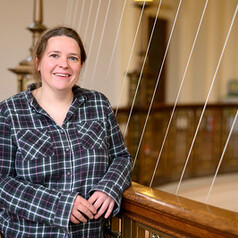
Emma Breeze
Assistant Professor International Criminal Law, University of Birmingham
Dr Breeze is a lecturer in international criminal law at the University of Birmingham. Prior to this lectureship she was a lecturer in law at Coventry University. She completed her PhD at the University of Birmingham under the supervision of Professor Robert Cryer and Dr Alexander Orakhelashvili in June 2020. She has previously held an ESRC Impact Acceleration Post-Doctoral Fellowship to develop impact from her PhD. This resulted in a policy briefing concerning the three-fold increase in the use of drones (unmanned aerial vehicles) by law enforcement in England and Wales. She has worked with several interdisciplinary research groups, including the Institute for Global Innovation and the Centre for Crime Justice and Policing, and engaged with both academics and practitioners. Her work has featured in the Journal of Conflict and Security Law.
Less ![]()

Emma Carpendale
Postdoctoral Research Fellow, School of Psychology and Counselling, Queensland University of Technology
Less ![]()

Emma Cave
Professor of Healthcare Law, Durham University
Emma Cave publishes widely in the field of Medical Law. In 2024 she serves as a core member of the Health and Social Care Committee Expert Panel, a member of the COVID-19 Inquiry Ethics Advisory Group and chairs a Nuffield Council on Bioethics working group on the ethical and regulatory issues raised by research on human stem cell-based embryo models. She previously chaired the Advisory Forum in the General Medical Council’s review of Good Medical Practice guidance, was an Assurance Group member of the Cass Review of gender identity services for children and young people, co-convened the Medical Ethics Expert Group of the Infected Blood Inquiry and served on the Human Fertilisation and Embryology Authority. Her research focuses on the protection of patient rights and interests, particularly where patients are vulnerable. Her 2004 monograph, The Mother of All Crimes was reissued by Routledge in 2018 and the seventh edition of her co-authored book (with Professor Margaret Brazier and Professor Rob Heywood), Medicine, Patients and the Law was published in 2023
Less ![]()


Emma Cohen
Associate Professor at the Institute of Cognitive and Evolutionary Anthropology and Fellow in Human Sciences at Wadham College, University of Oxford
I am Associate Professor at the Institute of Cognitive and Evolutionary Anthropology, University of Oxford and Fellow in Human Sciences, Wadham College.
My current primary research explores psychological links between collective movement and exercise, social bonding, cooperation and wellbeing.
Since completing my PhD in Anthropology (Queen’s University Belfast, 2005) I have held positions at the Institute of Cognition and Culture (Queen’s), the Centre for Anthropology and Mind and the Institute of Cognitive and Evolutionary Anthropology (Oxford), and the Research Group in Comparative Cognitive Anthropology at the Max Planck Institute for Evolutionary Anthropology (Leipzig, Germany) and the Max Planck Institute for Psycholinguistics (Nijmegen, Netherlands).
Less ![]()
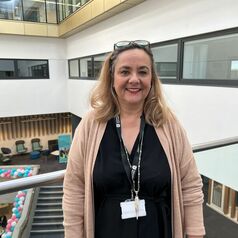
Emma Cunningham
Senior Lecturer Criminology, University of East London
I am thoroughly enjoying my work at the fabulously diverse University of East London. As a working class academic I have adopted an intersectional feminist approach to my research, teaching, and engagement which tackles some of the most urgent problems across policing. I am interested in how police culture remains toxic, how stop and search impacts community relations and how policewomen continue to undertake their role and responsibilities, remain resilient and stay in policing even given their own lived-experiences. At its heart, my scholarly activities are driven by a pursuit of equality, diversity and social justice and my work has made important contributions to our understanding of the history of women’s integration in policing and the arguments of sameness and difference which were used and applied to women, contributing to a deeper understanding of the challenges women in policing face and have faced. I have been asked by different media outlets for my expert comments for articles in The Guardian and INEWS, and I have made appearances on T.V programmes such as BBC NEWS Channel, Sky News, Channel 5 News and on the radio for 5 Live, BBC Wales and BBC Hertfordshire and Worcester. In working for UEL I have become involved in networks, blogs, and in writing short articles for the Sunday Times and Open Access Government articles about policing, misogyny and the toxic culture recently exposed in policing. I am asking questions about participation, in/exclusion, and using creative methods and approaches to present a more nuanced and complicated picture of policing problems.
Less ![]()

Emma Daitz
Research Fellow, University of Cape Town
Emma Daitz holds a PhD in historical sociology from the University of Cape Town. She is currently working on transforming her dissertation on the letters of Robert Sobukwe and Benjamin Pogrund into an academic monograph.
Less ![]()

Emma Dempster
Senior Lecturer, Clinical and Biomedical Sciences, University of Exeter
My PhD and initial postdoctoral research were focused on the analysis of functional genetic variants in psychiatric disorders; although this approach has been relatively successful it has become apparent that there are other factors at play in complex disorders. During my time as a post-doctoral fellow in Toronto, funded by a University of Toronto International Fellowship, I was involved in a ground-breaking study investigating parent-of-origin DNA methylation in mouse brain which was published in Cell (Xie et al. 2012). On returning to London I was able to continue my research into epigenomics and joined Professors Mill’s lab at the Institute of Psychiatry where I spearheaded the first systematic analyses of genome-wide DNA methylation differences in monozygotic twins discordant for psychiatric illnesses. After relocating with Professor Mill to Exeter in 2012 I continued my research into psychiatric epigenetics and was promoted to Lecturer at the University of Exeter Medical School in 2015 and then Senior Lecturer in 2021. My current research focus aims to elucidate regulatory genomic variation associated with disease using novel tools such as epigenomic tools based on the CRISPR-cas9 system to understand the role epigenetics play in brain disorders. Another important aspect of my work involves enabling the profiling of the regulatory landscape of discrete cell populations derived from post-mortem brain samples. This project holds significant potential in providing valuable understanding of both neurodegeneration and neuropsychiatric disorders.
Less ![]()

Emma Dupuy
Postdoctoral researcher, cognitive neuroscience, Université de Montréal
Researcher in cognitive neuroscience, my work focuses on brain plasticity in adults and its behavioral expression within cognitive and motor functioning. In a postdoctoral position, I address the phenomenon in older adults by investigating the neurocognitive and functional changes induced by lifestyle interventions, i.e., physical activity, cognitive training, and more recently cultural activities (museum visits).
Less ![]()

Emma Fingler
PhD Candidate in Political Studies, Queen's University, Ontario
Emma Fingler (she/her) is a SSHRC-funded doctoral candidate of Political Studies at Queen’s University researching gender, disaster response operations, and regional governance in South and Southeast Asia. She is a Doctoral Fellow with the Research Network on Women, Peace and Security (RN-WPS) at McGill University and is a Graduate Research Fellow with the Centre for International and Defence Policy (CIDP) at Queen’s University. Emma is also a Teaching Fellow at Queen’s University. Prior to joining Queen’s, she was the Special Assistant to the United Nations Resident Coordinator in Kathmandu Nepal. She holds an M.A. in Global Governance from the University of Waterloo’s Balsillie School of International Affairs and a B.A. Hons. in Political Studies from Bishop’s University.
Less ![]()

Emma Frost
PhD candidate, Australian Centre for Health Engagement, Evidence and Values, University of Wollongong
Emma is a PhD Candidate working on public engagement in healthcare AI at the Australian Centre for Health Engagement, Evidence and Values.
Less ![]()

Emma Garlett
Legal Academic and Industry Fellow, Centre for Social Responsibility in Mining, The University of Queensland
Emma Garlett is a Nyungar-Nyiyaparli-Yamatji Traditional Owner from Geraldton. Emma has experience working in the mining industry, academia, media and as a lawyer.
Emma is an Industry Fellow at the Sustainable Minerals Institute at The University of Queensland. She conducts legal and policy research to guide the future of sustainable mining, application of ESG principles, and green investment in natural resource management. She has a special interest in Traditional Owner inclusion in mining as it relates to the application of ESG principles. She has presented her legal research to the United Nations Special Rapporteur on the Rights of Indigenous Peoples, and various international (UCLA, University of Arizona) and domestic conferences (ANU, NELA, EDO).
Emma is an Adjunct Professor, Global and Engagement and Advisory Board Member of the National Centre for Reconciliation, Truth and Justice at Federation University. She also has a casual appointment at Curtin Law School.
Emma is a regular First Nations legal and business social commentator, and writes weekly columns in print and online for The West Australian. She is the host of Paint it Blak on YouTube, a partnership project between Seven West Media and Google.
Emma was appointed to and sits on both the Law Society of Western Australia’s Commercial Law Committee and Indigenous Legal Issues Committee. She is also a Tribunal Member of the West Australian Football Commission.
Less ![]()
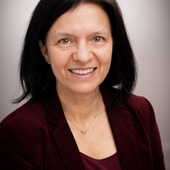

Emma Heffernan
Associate Professor in Architecture, University of Sydney
Dr Emma Heffernan is an Associate Professor in Architecture in the School of Architecture, Design & Planning at The University of Sydney. Emma is a UK Registered Architect with over a decade of experience in architectural practice in the UK. Emma has strengths in leadership in Teaching and Learning, and a developing portfolio of pedagogical research. Emma’s teaching and curriculum development are enriched by the experience and knowledge she brings from her first career as an architect, together with her research in sustainable buildings. Emma is a passionate teacher, who supports and challenges her students to apply themselves to real-world problems. Emma’s research has a policy and practice focus, and is underpinned by a concern for how our homes and communities can support healthy, affordable and sustainable lives. Her research interests and expertise include a circular economy in the built environment, construction waste, sustainable construction, energy efficient design in residential buildings, zero carbon homebuilding, net zero apartment buildings, sustainable communities, and collaborative housing.
Less ![]()
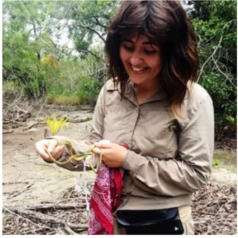
Emma Higgins
Lecturer in Ecology, University of South Wales
I am a lecturer in ecology at the University of South Wales, my research interests are focused on the use of conservation technology to monitor the natural world, for example developing techniques and workflows for ecology research and wildlife conservation.
Less ![]()

Emma Hitchcock
PhD Candidate in Management, Auckland University of Technology
Emma-Louise Hitchcock is a PhD Candidate in Management at Auckland University of Technology with an interest in workplace diversity, equity and inclusion. She was awarded First Class Honours for her Master's research, “Smashing the patriarchy and creating a gender equal society through pay transparency”.
Less ![]()
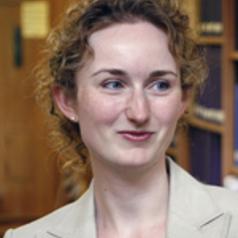
Emma Hitchings
Professor of Family Law, University of Bristol
Emma Hitchings is a Professor of Family Law at the University of Bristol Law School. She is an expert on financial remedies on divorce and family justice issues, and has been the lead or joint investigator on a range of empirical studies in family law and family justice, including Financial settlements following divorce (Nuffield); Pre-nuptial agreements (Law Commission); Everyday financial remedy cases (Nuffield); Fee-charging McKenzie Friends (Bar Council) and Litigants in Person in private family law cases (Ministry of Justice). She has written widely on issues in family law. A key theme underpinning her research has been exploring how family law works in practice and its impact on individuals, professionals and the family justice system.
Less ![]()
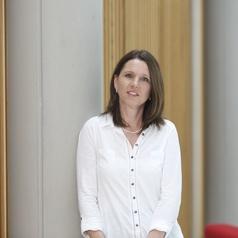
Emma Ireton
Associate Professor, Nottingham Law School, Nottingham Trent University
Prior to joining Nottingham Law School, Emma spent 12 years as a solicitor in commercial practice, in the fields of public inquiries, commercial litigation, and environmental law, including working on the Saville public inquiry into the events of Bloody Sunday.
Her research specialism is applied public inquiry law and procedure, particularly focusing on promoting greater public and academic understanding of the public inquiry process and improving public inquiry practice. She is a member of the NLS Research Centre for Conflict Rights and Justice.
Emma’s role includes curriculum development and course design for vocational and practitioner courses. Emma's focus is on bridging the gap between legal academia and practice. She works closely with leading solicitors, barristers and members of the judiciary to enhance curriculum design, write academic and practitioner publications, and on practice-focused research projects.
Less ![]()
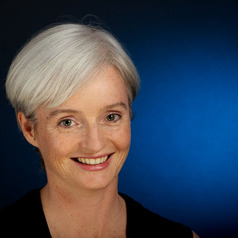
Emma Johnston
Professor and Pro Vice-Chancellor (Research), UNSW Australia
Professor & Pro Vice-Chancellor (Research) at the University of New South Wales.
Fields of Research: aquatic ecology, ecotoxicology, marine bioinvasions
Less ![]()


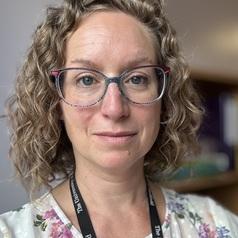
Emma Lucas
Lecturer in Reproductive Medicine, University of Sheffield
My research focuses on the function of the endometrium, the lining of the womb, in determining pregnancy outcomes.
I studied undergraduate Human Biology (Loughborough University, UK) followed by a Masters degree in Assisted Reproduction Technology (University of Nottingham, UK) before obtaining my PhD from the University of Nottingham, UK. I undertook Postdoctoral positions at the University of Southampton, looking at the role of maternal environment on offspring development and long-term health, and then at the University of Warwick, where I investigated the role of the endometrium in recurrent miscarriage. I joined the University of Sheffield in October 2023 as Lecturer in Reproductive Medicine.
Less ![]()

Emma Macdonald
Charles Huang Chair in International Business and Director, Stephen Young Institute, University of Strathclyde
Emma Macdonald is a professor at Strathclyde Business School where she is Charles Huang Chair in International Business and Director of the Stephen Young Institute.
Emma joined Strathclyde in 2023 as inaugural Director of the Stephen Young Institute which focuses on international and sustainable business. Emma was at Cranfield School of Management for a decade, holding a number of different roles including coDirector of the Cranfield Customer Management Forum for nine years and leader of Cranfield's popular Customer Centric Strategy programme for five years. Emma was Head of the Sustainability and Marketing faculty groups when she left Cranfield to join University of Warwick. As Professor of Marketing at Warwick Business School for four years, Emma led on the prestigious London MBA receiving multiple teaching commendations and an award for pastoral care.
Emma has consulted to organisations across the globe in business and nonprofit sectors, in product and service industries, and in business-to-consumer, business-to-business and government sectors. She has launched and led open and custom executive programmes including on customer experience management and marketing planning. She is Visiting Professor in Cranfield’s Sustainable Business Group. Emma’s research in sustainability and marketing has been published in Harvard Business Review, and in top-ranked journals including Journal of Marketing, Journal of Product Innovation Management and Journal of Business Research.
Less ![]()



Emma McNicol
Research Fellow at Monash Sustainable Development Institute, Monash University
Dr Emma McNicol is a Research Fellow at Monash University's Sustainable Development Institute. Emma is an expert in feminist theory and has published widely on male violence, intersectionality and Simone de Beauvoir's work. Emma's current research project, National Indigenous Disaster Resilience, champions First Nations leadership in the face of natural hazards intensified by climate crisis.
Less ![]()

Emma O'Donnell
Research Assistant, Environmental Change Institute and PhD Candidate, Nature-based Solutions Initiative, University of Oxford
Emma holds a B.A in Ecology and Evolutionary Biology from Princeton University and a MSc. in Sustainability, Enterprise and the Environment from University of Oxford. She has research experience in Bermuda and Palau on coral reef and reef fish ecology and on the nature-related risks of UK-based financial institutions. Emma previously worked at Aon, a financial services firm, in their Climate Change Unit on analytics and reinsurance products for climate- and ESG-related risks in London and New York. Currently, she is a PhD student in Biology under the supervision of Nicola Ranger (Environmental Change Institute (ECI)) and Nathalie Seddon (Nature-based Solutions Initiative). Alongside her PhD, Emma serves on the Advisory Board for BSI's Standards for Biodiversity Markets and has holds a research assistant position with the ECI's Global Finance and Economy group, focusing on greening finance for nature.
Less ![]()

Emma Pakula
Senior Research and Policy Officer, Burnet Institute
A senior research and policy officer at The Burnet Institute in COVID-19 and health emergencies. She is experienced in program management and policy in public health, health system strengthening, emergency response and international development.
Less ![]()

Emma Palmer-Cooper
Lecturer in Psychology, Centre for Innovation in Mental Health, University of Southampton
Dr Emma Palmer-Cooper is a Lecturer in Psychology within the Centre for Innovation in Mental Health. My research primarily focuses on self-awareness in relation to mental health and related thought processes, psychological wellbeing, and creativity. I have a focus on developing digital interventions (eHealth) for mental health support, and understanding user attitudes towards AI.
I am also interested in Public Engagement, involving patients and the public in the design and communication of psychological and healthcare research.
Less ![]()

Emma Power
Associate Professor Emma Power is a speech pathologist and academic at the University of Technology Sydney. She has worked in the area of communication disorders following acquired brain injury for over 23 years in a variety of clinical and academic positions.
Less ![]()

Emma Rettner
PhD Candidate in Materials Science and Engineering, Colorado State University
Emma's research interests include polymer chemistry, block copolymer design and organic materials.
Less ![]()

- Market Data



















